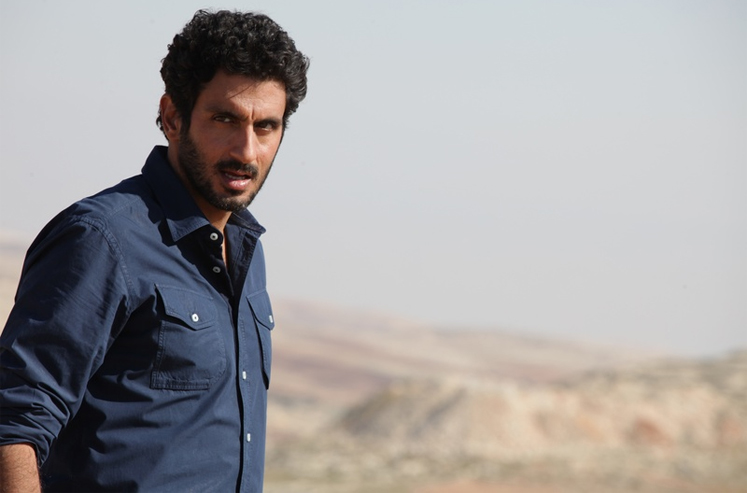It was a curious coincidence that my advanced screening copies of Omar and Bethlehem arrived in the same package in the mail. They are similar films, telling a similar story about the relationship between Israel and the Palestinians through the lens of Israel special agent’s relationship to his Palestinian mole, but told from opposing perspectives. In Omar, the Palestinian film, the Israeli forces are an omnipresent oppressor, and cooperation with the Israeli secret service is a form of blackmail, exploitation that destroys the bonds of trust within the Palestinian community. It is a dark tragedy, told through richly realized characters. And the film’s strength is the way its story unfolds the dispositions, drives, and biases of fully-human characters in a way that offers insight into the depth of the crisis’ complications.
Bethlehem is made by as Israeli filmmaker, Yuval Adler, and it almost plays as a justification of that oppression. The Israeli agent, Razi (Tsahi Halevi), looks like Bradley Cooper, and he is a hero whose complications or contradictions barely penetrate the surface of his character. The situation is also framed plainly. The Palestinians are largely obstinate gangsters and petty opportunists. If only they would cooperate with Israel, then peace could be realized. Whereas in Omar resistance to the Israeli occupation is a desperate, the last gasp of a cornered dog, here resistance is a nuisance. It is a product of a splintered Palestinian community that is pulled apart by selfish factions: the Palestinian leadership, Hamas, and other rebel groups. The Israeli’s are peacekeepers, police investigating crimes. Not an occupying force, the agents of a military subjugation.
Caught in the center of this is Sanfur (Shadi Mar’i), a young and tough Palestinian and informant whose brother is an implicated in a recent car bombing in Jerusalem. Through the lens of the film, Sanfur’s collaboration with the Israelis is indicative of his bravery and right-headedness. But the latest attack strikes too close to home. Razi has an almost paternal relationship to his source, and he tries to protect the boy even after the Israeli brass and Palestinian militia leaders turn against the double agent. It doesn’t help Sanfur’s case that it turns out that he has been helping both sides, but Razi understands the conflict. Sanfur is torn between pride and shame, familial loyalty and sense of righteousness. The Israeli’s tragic mistake is that he believes he can still turn his mole.
Holding Bethlehem up against Omar reveals the paltriness of the newer movie. Bethlehem’s characters and situation are not nearly as nuanced as the Palestinian film, and there is something blunt and propagandistic about the movie. It is a film that has pretenses towards offering up a rich character study, but there are less to these protagonists than meets the eye. Rather, Bethlehem is primarily a police procedural, and in the mechanics of its procedures, a sensitivity is lost. Despite the film’s pessimism, like a Hollywood action film, it makes victims of its heroes in order to corner our disposition towards the dramatic conflict. And it’s this inflexibility that makes the film’s cathartic action less than satisfying; we are not pushed to empathize with the Palestinians, but to pity them.






